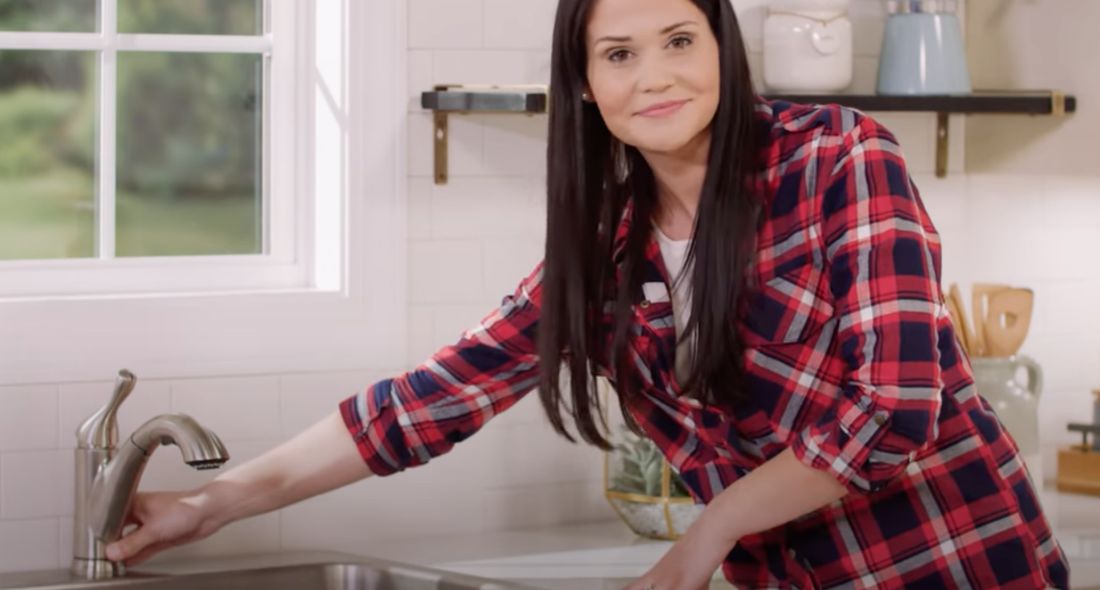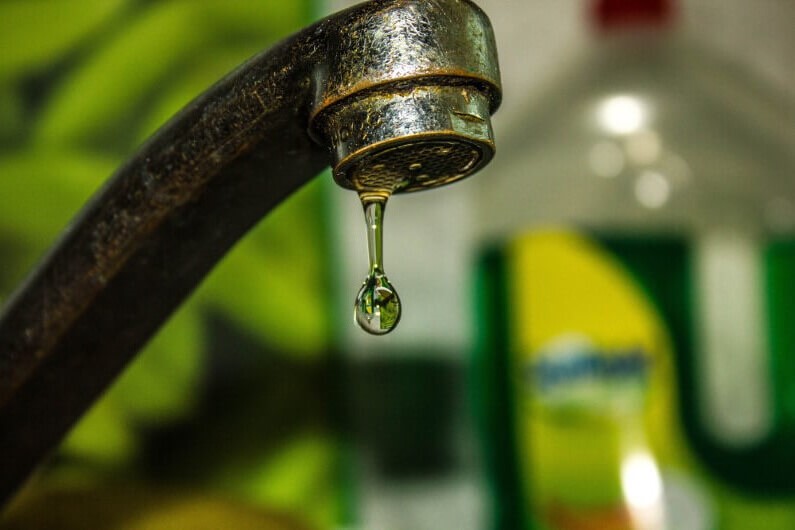Discovering the Importance of Repairing a Broken Faucet
Discovering the Importance of Repairing a Broken Faucet
Blog Article
Just how do you really feel on the subject of Why It's Important to Fix Leaky Faucets?

Trickling taps might seem like a small hassle, however their influence surpasses simply the inconvenience of the sound. From drainage to sustaining unneeded economic expenses and health risks, neglecting a dripping tap can lead to numerous consequences. In this post, we'll look into why it's critical to resolve this usual family concern quickly and properly.
Wastage of Water
Environmental Influence
Leaking faucets contribute considerably to water wastefulness. According to the Epa (EPA), a single faucet leaking at one drip per secondly can squander greater than 3,000 gallons of water each year. This not just pressures water resources but additionally impacts environments and wildlife dependent on them.
Financial Prices
Boosted Water Bills
Past the environmental effect, trickling faucets can inflate water bills substantially. The collected wastage gradually converts into higher utility costs, which could have been stayed clear of with timely repair work.
Possible Residential Or Commercial Property Damages
Moreover, long term leaking can result in harm to components and surfaces surrounding the faucet. Water buildup can create discoloration, corrosion, and even architectural issues if left ignored, leading to additional repair costs.
Health and wellness Concerns
Mold and Mold Growth
The continuous presence of moisture from a leaking faucet creates a perfect setting for mold and mildew and mold growth. These fungis not just compromise indoor air top quality however likewise posture health risks, specifically for people with respiratory system problems or allergies.
Waterborne Diseases
Stationary water in dripping taps can end up being a breeding place for germs and various other virus, increasing the danger of waterborne illness. Contaminants such as Legionella bacteria thrive in stagnant water, possibly resulting in major ailments when ingested or inhaled.
DIY vs. Expert Repair
Advantages and disadvantages of DIY Repair Service
While some may try to fix a leaking faucet themselves, DIY repairs come with their own collection of difficulties. Without appropriate expertise and devices, do it yourself efforts can aggravate the problem or bring about incomplete repair work, extending the trouble.
Benefits of Employing an Expert Plumber
Hiring a specialist plumber guarantees that the underlying root cause of the dripping tap is addressed effectively. Plumbers possess the proficiency and equipment to detect and repair tap concerns successfully, conserving time and minimizing the risk of further damage.
Step-by-Step Guide to Dealing With a Dripping Tap
Tools Called for
Before attempting to take care of a trickling faucet, collect the required devices, consisting of an adjustable wrench, screwdrivers, substitute components (such as washers or cartridges), and plumber's tape.
Common Faucet Issues and Their Solutions
Identify the type of tap and the particular problem triggering the drip. Common problems consist of damaged washers, corroded valve seats, or defective O-rings. Refer to manufacturer instructions or online tutorials for detailed support on repair services.
Safety nets
Regular Upkeep Tips
To prevent dripping taps, execute regular upkeep such as cleaning aerators, checking for leakages, and changing worn-out parts promptly. Additionally, consider mounting water-saving tools or upgrading to much more efficient components.
Significance of Prompt Services
Dealing with trickling taps as soon as they're discovered avoids additional water wastefulness and potential damage, eventually saving both water and money over time.
Effect On Building Worth
Understanding of Well-Maintained Residential Property
Keeping a residential or commercial property in good condition, consisting of resolving maintenance concerns like leaking faucets, enhances its viewed value and charm amongst prospective customers or tenants.
Influence on Resale Value
Properties with well-maintained plumbing components, including taps, command higher resale worths in the property market. Addressing dripping faucets can add to a favorable perception throughout property examinations and arrangements.
Ecological Obligation
Specific Contribution to Preservation
Taking responsibility for repairing trickling taps lines up with wider efforts towards water conservation and environmental sustainability. Every individual's actions collectively make a substantial influence on preserving precious sources.
Lasting Living Practices
By prioritizing timely repair work and adopting water-saving behaviors, people contribute to lasting living techniques that profit both existing and future generations.
Verdict
Resolving a dripping faucet exceeds simple ease; it's a necessary action towards conserving water, reducing economic expenses, and guarding wellness and residential or commercial property. Whether via do it yourself fixings or expert assistance, taking action to repair trickling taps is a tiny yet impactful method to promote accountable stewardship of sources and add to a much healthier, a lot more lasting future.
Why Are My Faucets Dripping (And Can I Fix it Myself)?
Causes of a Dripping or Leaking Faucet
Whether you’re hearing drops of water falling and hitting a sink, or noticing water ooze out from the base of the spout, you shouldn’t ignore a dripping or leaking faucet. And, the good news is, sometimes you can fix the problem yourself.
In this article, we’ll review a few common causes of dripping and leaky. We’ll also walk you through some basic ways to find the problem and handle it without calling anyone — and let you know when to call in a pro.
But, no matter what the cause, or whether you can handle it on your own, the sooner you address it, the better.
Each drip may be a tiny amount of water. But, they all add up quickly. According to the U.S. Geological Survey, one faucet losing one drop every 20 seconds — five a minute — wastes around a liter of water every day, and 173 gallons a year.
Add in more than one in your house, and it’s a lot of water to waste. So, we’ll help you get to the bottom of things quickly.
Four Reasons Your Faucet May Be Dripping
Aerator is Damaged or Unseated Valve Seat is Corroded O Ring is Loose or Worn Out Part of the Assembly is Loose Aerator is Damaged or Unseated
If you unscrew the end of your faucet, you’ll find the aerator. It’s the little stem piece with a screen on it that shuts off the water circulation.
If it’s damaged, or if it’s not sitting right, it will allow water to pass through.
Valve Seat is Corroded
Next is the valve seat, which is connected to the washer. If the washer wasn’t in place correctly, then it could have ground against the seat. Over time, this damages the valve seat.
The problem could also be corrosion: Over time, the part has worn out, and it’s now allowing water to pass through.
O Ring is Loose or Worn Out
Since the o ring is only a small rubber gasket, it’s a common reason why the faucet is dripping. You’ll find it at the base of the faucet, and it’s there to keep water from coming out where it’s not supposed to.
However, it’s common for the o ring to wear out over time. When it does, you’ll notice a drip.
Part of the Assembly is Loose
So far, we’ve looked at a few small, specific parts. But, the problem could be anywhere in the assembly if something’s out of place.
Even if a part isn’t damaged, over time, it may have become loose or dislodged. It could be the parts we mentioned, or the aerator at the tip of the faucet, the stem itself,
Can I Fix a Leaky Faucet Myself?
Depending on the problem, and how handy you are, there’s a chance you can fix a leaky faucet without calling a professional. But, you do run the risk of making the problem worse.
If it’s a small drip, you can certainly try a few troubleshooting tactics. We’ll walk you through them in a moment.
But, no matter what, your first step should be shutting off the water coming into the faucet. You should find a shutoff valve under the sink on the pipes leading to it. Turn each one clockwise until they close tightly.
Next, make sure you have the right tools for whatever you’re attempting. It’s tempting to make do with what you have. But, you need the right ones for a reason: You’re often dealing with small parts that can break if you handle them carelessly.
If you’re feeling confident, here are some places to start.
Items Near the Tip of the Faucet
A few of the parts we mentioned — particularly the valve seat and washer — are located at the tip of the faucet where the water comes out. They’re easy to access, making it a good place to start.
Check the O Ring
To check the o ring, you’ll need to take off the spout at the base. It’s easiest on kitchen sinks with long spouts, versus the smaller, bulkier base on most bathroom sinks.
Either way, this can be tricky, so do it carefully and don’t force anything. If it’s not coming right off, you’re much better off calling in a pro than possibly breaking something.
For a kitchen sink, there’s usually a nut or coupling assembly at the base of the spout. These often slide off easily without using any tools.
Once you’ve disassembled those parts, gently but forcefully twist off the spout.
Then, you can see the o rings. There should be two of the rubber gaskets on the base. If they look worn or damaged, replace them, and see if that solves the problem.

I was shown that write-up about Leaky Faucets: Why They Happen & What to Do About Them through a buddy on another blog. Do you know somebody who is fascinated with 4 Common Reasons for a Leaky Faucet? Feel free to promote it. Thanks a lot for taking the time to read it.
Report this page